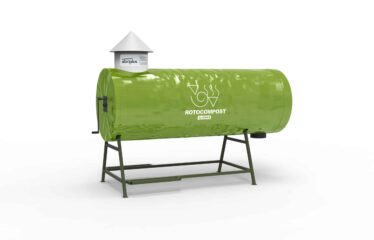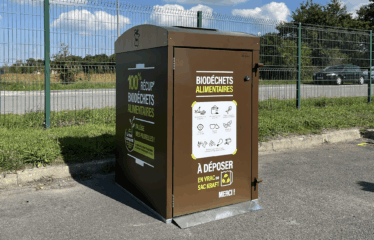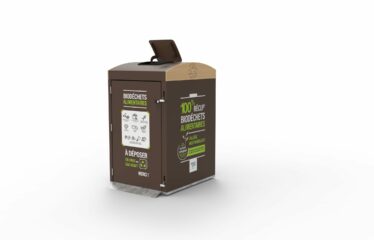Shelter for biowaste bins – Collection for a small town
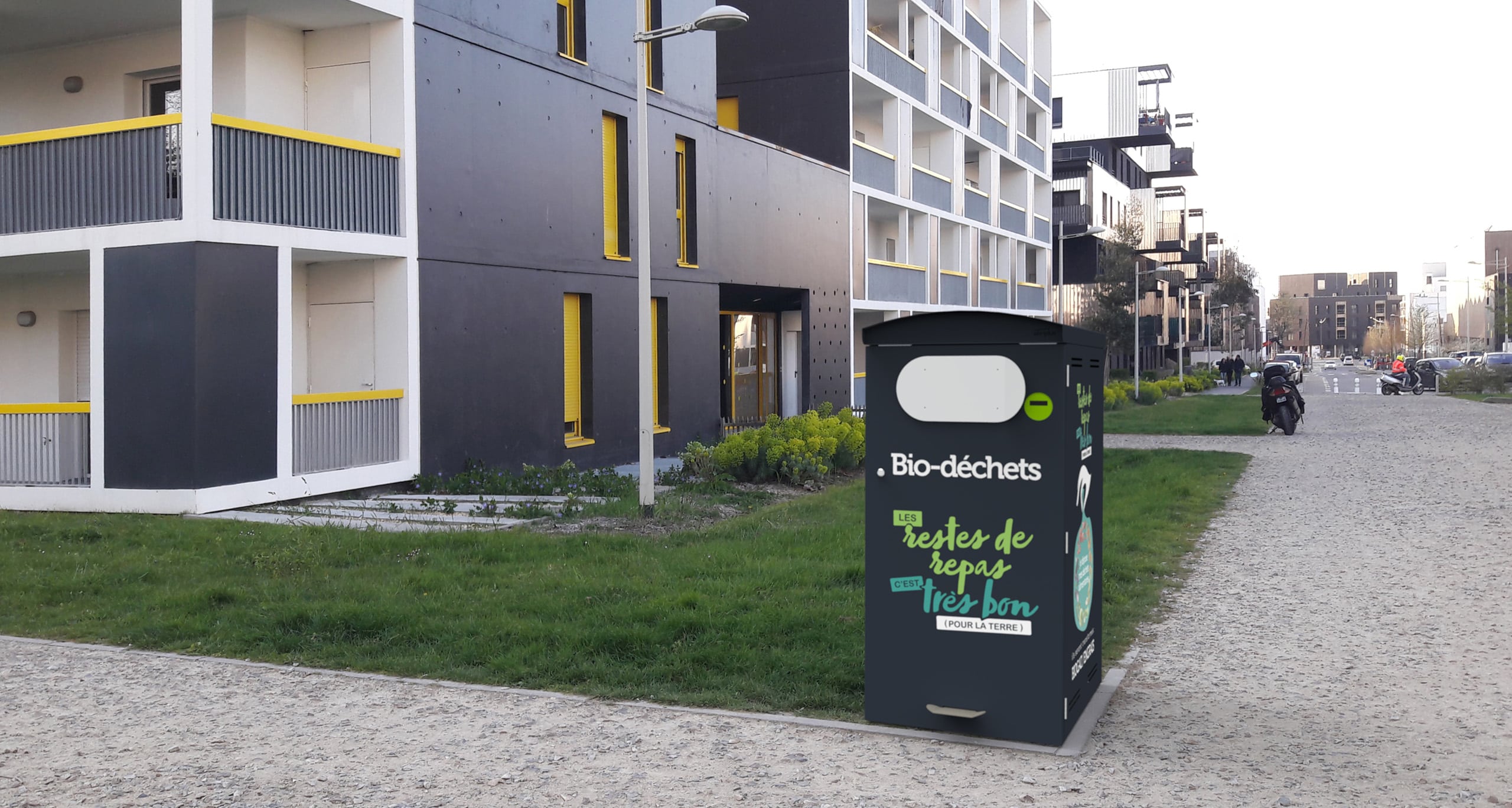
Product category Waste collection and sorting
Products BIOCOLLECT shelter, BIOCOMPOST shelter
From January 1, 2024, all households must have a solution for sorting and recycling their biowaste. This means that local authorities must provide residents with effective solutions. Among the many options available, one in particular is highly favored in urban environments: voluntary drop-off collection.
Appreciated by town councils and residents alike, this method of collecting and sorting biowaste offers many advantages:
– Easy to install
– Efficient management of large quantities of biowaste
– Accessibility for residents
– Solution recommended by ADEME for over 20,000 inhabitants
To help you think ahead and find the right solution, here’s a fictitious situation. This type of biowaste bin is suitable for urban areas. We’ll assume a population of 20,000.
In densely populated urban areas, it is recommended to install a planter every 50 to 100 meters.
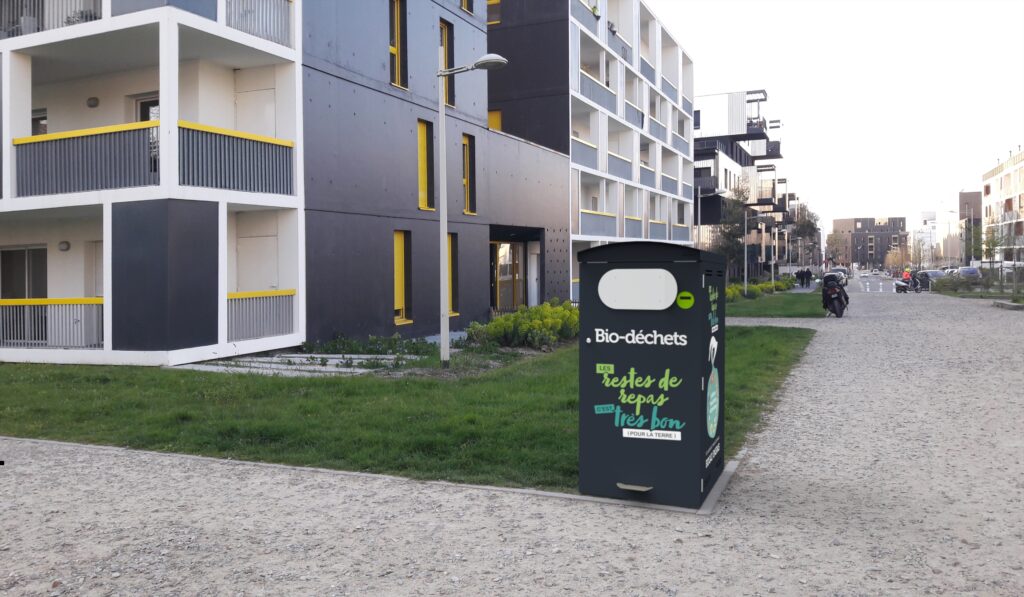
TheBioCollect shared bio-waste collection shelter is highly appreciated for its high-end features. Its galvanized steel construction ensures long-lasting durability. What’s more, the BioCollect is equipped with anti-odour vents, an anti-skid vaulted roof and a hands-free opening pedal suitable for people with reduced mobility.
Thanks to its attractive adhesive surface, it’s easy to communicate with users. Here, for example, we’ve chosen to indicate the name of the owner of the BioCollect bins, as well as their instructions for use. This way, users can easily find out what they can and can’t put inside these biowaste collection bins, and how to use them.
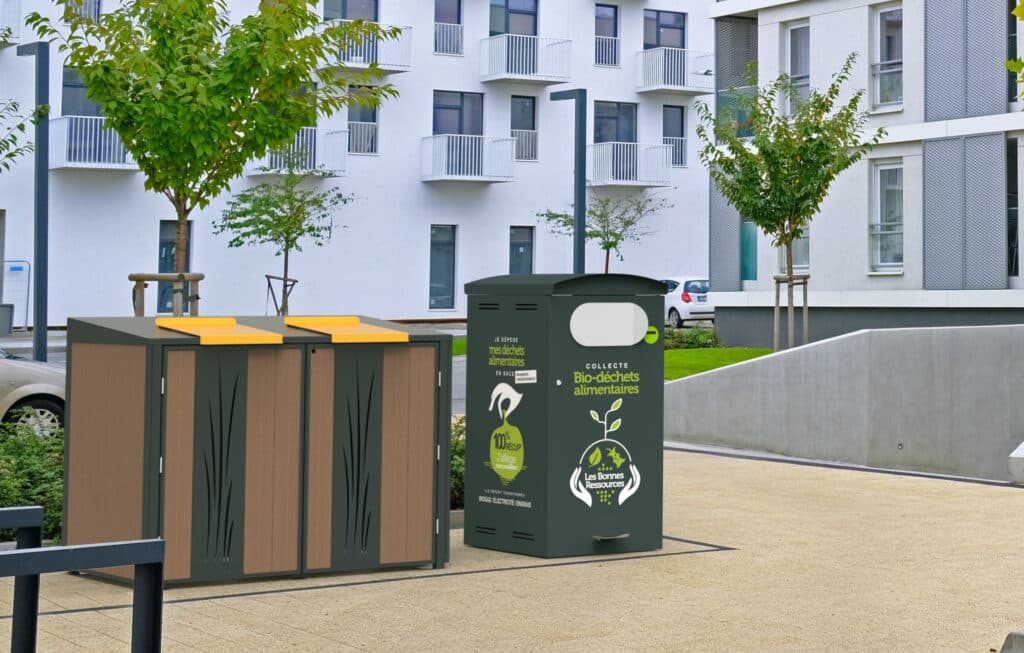
TheBioCollect bins are placed as close as possible to residents’ homes, to make it easier for them to use them, and to limit their efforts. The agglomeration has therefore meshed the various building districts with 3 to 4 BioCollect pre-collection bins, depending on the area.
We have also decided to install collection bins in the 2 main shopping squares in the center of town. These high-traffic areas are a strategic point, particularly for retailers and restaurateurs, who will be able to use the P.A.V.(Point d’Apport Volontaire) bins.

To manage this bio-waste, the agglomeration uses an external collection service. They empty the bins at least once a week, and twice in the summer, to ensure efficient bio-waste management. The organic matter collected is destined for redistribution via a composting platform or will be methanized.
As the agglomeration has several green parks, we also decided to add BioCompost collective composter bins. As BioCompost and BioCollect are complementary, they can coexist in the same city.
BioCompost collective composters also enable residents to bring in their biowaste voluntarily, but with this solution, composting is carried out on site and does not need to be collected. This means it can be directly redistributed to volunteer households. The BioCompost allows you to follow the different stages of composting thanks to its different bins. This community composter is equipped with rodent protection and secure access. It is also made of galvanized steel.
For this type of bin, it is recommended to allow about 15 to 20 liters of compost per person.
By combining a network of voluntary drop-off points and shared composters, this conurbation is considerably reducing the weight of its waste and its carbon footprint.
We offer support from project development right through to the installation of biowaste collection and composting shelters. If you are interested in this type of project, please contact us. We’ll be delighted to help.
Share this article
